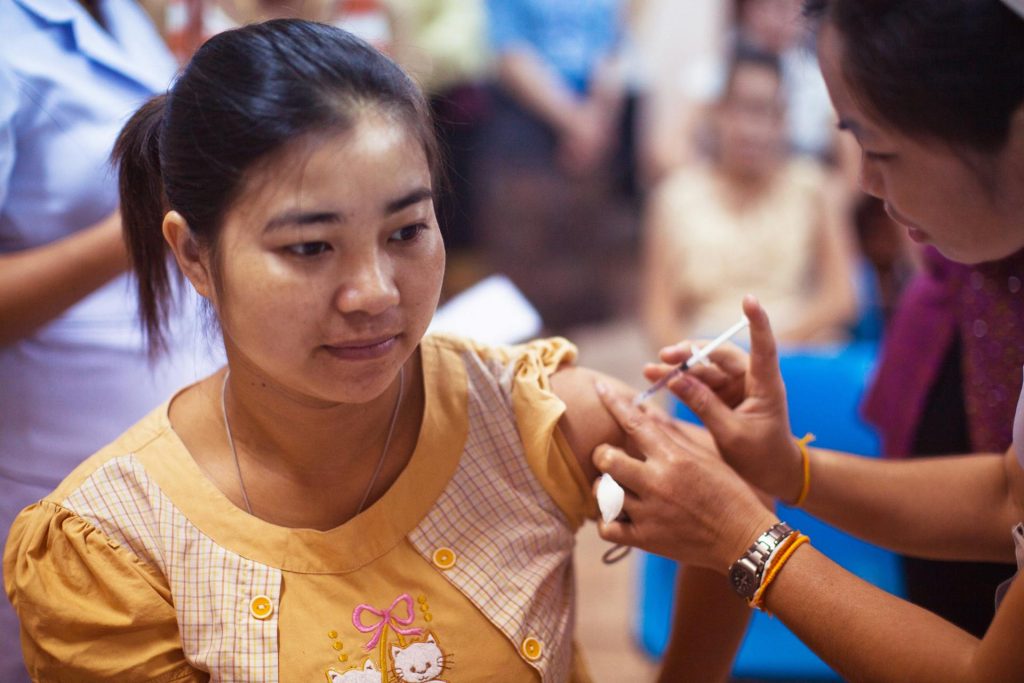Immunizations, also known as vaccinations, are one of the most effective public health interventions for preventing the spread of infectious diseases. They work by stimulating the immune system to recognize and combat pathogens, providing immunity without causing the disease. This article explores the importance of immunizations, the types of vaccines, their benefits, and the challenges associated with vaccination programs.

Importance of Immunizations
- Disease Prevention: Vaccinations prevent the occurrence of infectious diseases by providing immunity to individuals. They have been instrumental in reducing or eliminating diseases such as smallpox, polio, and measles.
- Herd Immunity: When a significant portion of the population is vaccinated, it reduces the overall prevalence of a disease. This protects those who cannot be vaccinated, such as individuals with certain medical conditions or allergies, through herd immunity.
- Public Health: Immunizations contribute to the overall health of the community by preventing outbreaks and reducing the burden on healthcare systems. They help avoid the complications and costs associated with treating infectious diseases.
- Global Health: Vaccination programs have global impacts, helping to control and eradicate diseases worldwide. International efforts to distribute vaccines can prevent pandemics and improve health outcomes in underserved regions.
Types of Vaccines
- Live Attenuated Vaccines: These vaccines use weakened forms of the virus or bacteria that cause the disease. They stimulate a strong immune response and provide long-lasting immunity. Examples include the measles, mumps, and rubella (MMR) vaccine and the yellow fever vaccine.
- Inactivated or Killed Vaccines: These vaccines use killed or inactivated forms of the pathogen. They are generally safer for individuals with weakened immune systems but may require booster doses for long-term protection. Examples include the polio vaccine and the hepatitis A vaccine.
- Subunit, Recombinant, or Conjugate Vaccines: These vaccines contain only specific parts of the pathogen, such as proteins or sugars. They help the immune system recognize and fight the pathogen without using live bacteria or viruses. Examples include the human papillomavirus (HPV) vaccine and the Haemophilus influenzae type b (Hib) vaccine.
- mRNA Vaccines: These vaccines use messenger RNA to instruct cells to produce a protein that triggers an immune response. They have shown high efficacy in protecting against certain diseases, such as COVID-19. The Pfizer-BioNTech and Moderna COVID-19 vaccines are examples of mRNA vaccines.

Benefits of Immunizations
- Reduction in Disease Incidence: Vaccines significantly reduce the incidence of many infectious diseases. For instance, widespread vaccination has led to the near-eradication of smallpox and a dramatic decrease in cases of polio.
- Prevention of Complications: Immunizations prevent complications that can arise from diseases, such as pneumonia, meningitis, and long-term disability. They protect individuals from severe outcomes associated with infections.
- Economic Savings: Vaccinations reduce healthcare costs by preventing disease-related treatments, hospitalizations, and lost productivity. This results in savings for individuals, families, and healthcare systems.
- Improved Quality of Life: By preventing diseases, vaccines contribute to better overall health and quality of life. They allow individuals to lead healthier lives without the burden of illness.
Challenges in Immunization Programs
- Vaccine Hesitancy: Some individuals may be reluctant or refuse to get vaccinated due to concerns about vaccine safety, misinformation, or personal beliefs. Addressing vaccine hesitancy through education and communication is essential for improving vaccination rates.
- Access and Distribution: In some regions, particularly in low-resource settings, access to vaccines may be limited. Improving vaccine distribution and ensuring equitable access are critical for successful vaccination programs.
- Adverse Reactions: While vaccines are generally safe, they can cause side effects, ranging from mild reactions like soreness at the injection site to rare but serious adverse events. Monitoring and managing vaccine safety is important for maintaining public trust.
- Outbreaks and Emerging Diseases: New infectious diseases and outbreaks can pose challenges for vaccination efforts. Rapid development and deployment of vaccines are necessary to respond to emerging threats, as seen with the COVID-19 pandemic.
- Cost and Funding: The cost of vaccines and the funding required for vaccination programs can be significant. Public and private funding, as well as partnerships with organizations, are necessary to support and sustain immunization efforts.

Conclusion
Immunizations are a cornerstone of public health, providing protection against infectious diseases and contributing to the overall well-being of individuals and communities. By understanding the types of vaccines, their benefits, and the challenges faced in vaccination programs, we can support and promote effective immunization practices. Continued efforts to improve vaccine access, address hesitancy, and respond to emerging diseases will ensure that the benefits of immunizations are realized globally, safeguarding health and preventing disease.